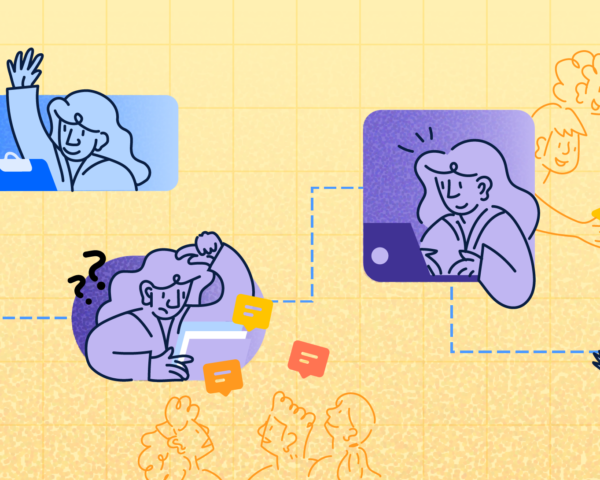5-second summary
- Chronic stress can impair memory and decision-making. Vacations provide a chance for your body and mind to recharge.
- Time outdoors, novel experiences, and additional rest are just some of the components that can boost the rejuvenating effects of time off.
- Creating moments of awe is a particularly effective strategy for recovering from stress.
- You don’t have to travel far or opt for high-adventure experiences to reap the full benefits of a vacation.
I had an awesome time last night. As in, I experienced some awe. It started with me feeling utterly drained from the day. Up at six, hustle through the family’s morning routine, crank through eight-plus hours of work, hustle to get dinner on. And all the while, thinking “Geez, I could sure use a vacation.” After tucking the kiddos into bed, I stepped outside to enjoy a breath of still-warm-but-no-longer-scorching air. A moment later, there was a bang as a nearby electrical transformer blew and the whole neighborhood lost power. My daughter, startled by the noise and investigating its cause, found me in the backyard.
Since her reading light and my Wi-Fi connection were both out of commission, we hung out for a while. We gazed up at a perfect thumbnail moon framed by trees; watched bats dart about looking for their breakfast; spotted fireflies dancing around the yard; and enjoyed the day’s stored heat as it radiated up from the patio bricks we laid on. It was a seriously joyful and rejuvenating hour.
The kicker is, I didn’t even go anywhere! Few of my worldly travels have been half as restorative as those small, serendipitous moments of awe were – which made me wonder what I’d been doing wrong all these years.
Maybe you’ve had to content yourself with a staycation for the last few years. Maybe your dream destination is off the table this year, too. Or maybe you’re in the midst of planning an all-out world tour. Whatever your vacation plans are, know that recharging is both an art and a science. Once you understand the psychology around why vacations are so valuable, you can get those same effects whether you’re traveling the globe or just walking out your back door.
5 psychological benefits of a vacation
When we’re taking time off from work for vacation, we’re looking to recharge our batteries and de-stress. That’s healthy for both your mind and body, according to Dr. Susan Kraus Whitbourne, a professor of Psychology and Brain Sciences at the University of Massachusetts.
“Chronic stress takes its toll in part on our body’s ability to resist infection and maintain vital functions,” she says. She also notes that stress disrupts sleep and digestion. “Mentally, not only do you become more irritable, depressed, and anxious, but your memory will become worse and you’ll make poorer decisions.” All those negative effects compound and often end up causing even more stress.
Breaking it down even further, psychologists have identified a number of other reasons that vacations are so rejuvenating:
1. Awe-some moments improve decision-making and critical thinking
It’s common for international travelers in particular to feel like they’re in a waking dream where things don’t quite seem real. In a foreign country, you’re immersed in subtle-but-thrilling differences: the sound of a different language being spoken, new smells in the air, unfamiliar makes of cars on the street. As you take it all in, you become dissociated from your usual conscious and unconscious expectations. It’s the psychological equivalent of taking a refreshing plunge into a cool lake on a hot day.
But you don’t need to travel far to get that effect – you can look for moments of awe literally in your own backyard (take it from me).
According to a team of researchers from various universities in China, experiencing awe elevates us from our mundane, everyday concerns. Awe pulls us away from our own egos and prompts us to re-think things we considered to be known and permanent, both of which have a transformative effect. In fact, awe is such a powerful emotion that it can alter our sense of time and hold us immersed in the present moment.
Research has also revealed that experiencing awe improves decision-making and critical thinking. For example, a study at Arizona State University found that awe leaves people less susceptible to being persuaded by weak arguments. This means that if you seek out awe on your time off, you’ll be set up to stay focused on the most important work and make smarter choices when you go back to work.
One way to experience moments of awe during your vacation is to avoid over-scheduling. Building in unstructured time will allow you to notice and appreciate those moments of awe when you stumble onto them.
2. Novel experiences give your brain a dopamine hit
When you discover something exciting or feel like you’re being adventurous, your brain releases dopamine, the neurotransmitter associated with feelings of being rewarded. Plus, according to researcher Marc Wittman, author of “Felt Time,” new experiences are more memorable and have the effect of making your vacation feel longer.
Even if you’re not traveling far, you can still change up your routine to provide some new thrills. Check out Yelp reviews of local attractions you haven’t visited – you’ll always find something. Decide to spend the week trying and ranking every ice cream place (or cocktail bar) in town. Go on a dolphin-watching excursion. Go zip-lining. Buy a kite and try your luck on a windy day.
If you’re opting for a staycation this year, changing up your routine can be almost as effective as hiking through the Costa Rican jungle, albeit less thrilling. How about trying a new workout, which has the added benefit of keeping you physically active? On the opposite end of the spectrum, you could spend a day reading a book cover to cover or watching all three “Back to the Future” movies in one go. If you’re a dedicated three-meals-per-day type person, try ditching breakfast and lunch in favor of brunch for a week. Bonus: eating your first meal of the day at 10:30am encourages sleeping in late, which is another way to change things up.
3. Physical activity melts away stress
Researchers from the University of Calgary found that physical activity – even relatively mellow activities like golf – reduced job-related stress in a study of 900 lawyers.
If you’re not the biking/hiking/adventuring type, build some walking into your time off. Amble around a botanical garden, explore an interesting neighborhood, or take a morning or evening stroll.
4. Better sleep makes everything better
The extra walking associated with sight-seeing, combined with the stress relief of being away from the office, means that people often sleep more soundly when on vacation.
Even if you’re sleeping like a baby at night, don’t be afraid to indulge in naps. Talk about luxury! We tend to get the most restful sleep in cooler environments with plenty of fresh air. If possible in your location, you could even try sleeping on your balcony, camped outside, or just with a window open.
5. Time with loved ones causes a surge of oxytocin
Being with people we care about stimulates the release of oxytocin, the neurochemical responsible for feelings of trust and social support. It also mediates stress and boosts overall well-being. Look for ways to include family members and other special people in your time off. Getting out on a hike with your partner might remind you why you love them in the first place.
Find awe in your daily life to keep the vacation vibes alive
Integrating some of those new and novel experiences into your everyday life can make the benefits of your time off last longer. Could brunch become a regular part of your weekends? Might you make a habit of stopping to take in little moments of awe instead of rushing past them like you used to?
As for work, try taking your laptop outdoors when you can for a change of scenery and some fresh air. Maybe include a festive non-alcoholic beverage, just for fun. Also, think about whether some of your pre-vacation job stress was caused by feeling like you’re stuck in a rut, or like your work doesn’t matter. If that’s the case, dig through all the “dream project” ideas filed away in your brain and see if now is the right time to pursue one of them. Juicy, meaningful work acts as a buffer against both boredom and burnout.









































